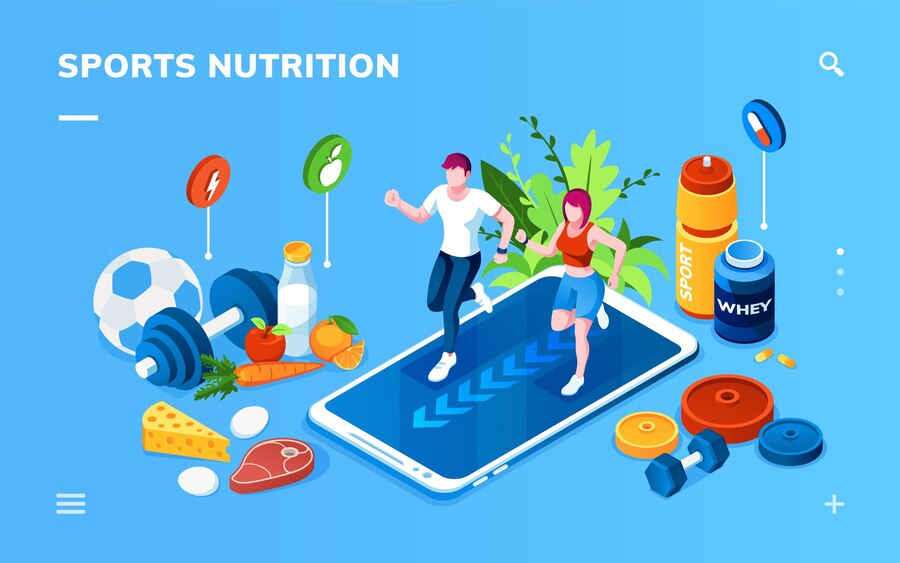Peak Performance: Fueling Your Athletic Endeavours Through Sports and Nutrition

Being an athlete is not just about the game or the sport you’re in. It’s a lifestyle that encompasses your training regimen, rest and recovery periods, and significantly, your nutrition. This article aims to guide athletes and fitness enthusiasts alike towards understanding the intersection of sports and diet and how to effectively manage both for optimal performance.
Nutrient Needs: Fuelling Your Sports Performance
Nutrition plays a critical role in sports performance. Proper dietary practices can aid in training, improve performance, and facilitate recovery. Here, we explore the primary nutrients that athletes need and their role in sports performance:
- Carbohydrates: They are the primary energy source for high-intensity and prolonged physical activity. Foods rich in complex carbohydrates include whole grains, fruits, and vegetables.
- Protein: Essential for growth and repair, protein aids in recovery post-training and helps build lean muscle mass. Good sources of protein include lean meats, poultry, fish, eggs, dairy products, legumes, and nuts.
- Fats: While not the primary fuel source for athletes, fats are essential for overall health, including the absorption of fat-soluble vitamins (A, D, E, K).
- Vitamins and Minerals: These are crucial for energy production, hemoglobin synthesis, bone health, immune function, and protection of the body against oxidative damage. They are found in a variety of foods, including fruits, vegetables, lean meats, and dairy products.
- Hydration: Staying well-hydrated is paramount for athletes, as it aids in thermoregulation, prevents dehydration, and helps deliver nutrients throughout the body.
Understanding and meeting nutrient needs is the first step towards achieving your sports goals.
Timing is Key: When to Eat for Optimal Performance
Optimizing your meals and snack times around your workout schedules can help maximize your athletic performance. Here’s a general guide:
- Pre-Workout: Aim for a meal rich in complex carbohydrates, moderate in protein, and low in fat 2-4 hours before your workout. This meal should fuel your body for the upcoming exercise and provide the necessary nutrients for sustained energy.
- During Workout: For extended exercises (90 minutes or longer), you may need to consume carbohydrates during the workout to maintain energy levels. Hydration is also crucial during this period.
- Post-Workout: Consuming protein and carbohydrates within 30-60 minutes after exercise can aid in recovery and muscle repair.
Remember, individual needs may vary, so it’s essential to listen to your body and make necessary adjustments.
The Power of Personalization: Tailoring Your Diet to Your Sport
Different sports have varying demands and thus require different nutritional strategies. Here’s a quick guide on how to tailor your diet based on the type of sport:
- Endurance Sports (Running, Cycling): High in carbohydrates for sustained energy, adequate protein for muscle repair and recovery, and a focus on hydration.
- Strength-Based Sports (Weightlifting, Bodybuilding): Higher in protein to support muscle growth and repair, with a balanced intake of carbohydrates for energy and healthy fats for overall wellness.
- Team Sports (Soccer, Basketball): A balanced diet rich in carbohydrates for energy, protein for recovery, and a variety of vitamins and minerals for overall health.
Always remember that your diet should be tailored according to your specific sports demands, personal goals, and individual body needs.
In conclusion, sports and nutrition are intrinsically linked; adequate nutrition supports athletic performance, while regular sports participation can shape nutritional needs. By understanding the role of diet in sports, athletes can optimise their food intake, fuel their performance, and unlock their full potential. The road to peak performance begins at the plate, so plan, eat, and play your way to sporting success!